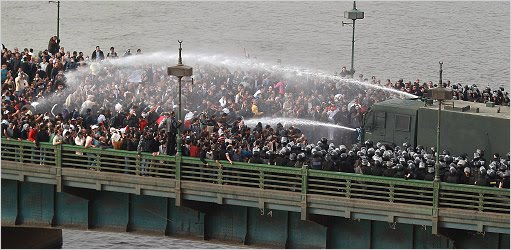The administrative court has ruled that a doctor who was shot while treating injured protesters on 28 January 2011, be treated in London at the state’s expense.
Dr Kamal Anwar Abdel Ghany had filed a lawsuit demanding that state institutions, including the office of president, prime minister, minister of health and the National Council for the Welfare of those Injured and Deceased (NCWID) offer the necessary expenses for his to be treatment abroad.
“The court ruling concerns Abdel Ghany alone,” said Malek Adly, lawyer at the The Egyptian Centre for Economic and Social Rights (ECESR). Adly added that the ruling doesn’t give the rest of those injured during the revolution the right to be treated at the expense of the state.
“Abdel Ghany received the ruling due to his special medical condition,” Adly said. “The ECESR shall work hard to see the ruling in action as soon as possible.”
Abdel Ghany was shot in the top of his left thigh and anus ECESR’s statement reported. The bullet wounds resulted in severe complications and he is in need of surgery.
He had already travelled to Austria for treatment at the expense of the Egyptian Club, according to the ECESR statement. Upon his return to Egypt, not fully cured, he was advised to travel to the United Kingdom to resume his treatment.
The expenses of his treatment were calculated to cost $50,000. Abdel Ghany resorted to the NCWID and the council transferred him to the Ministry of Health, which eventually granted Abdel Ghany $12,000, at which point he filed the lawsuit to sue for the remaining money.
The ECESR highlighted in its statement the fact that the court ruling came six months into the rule of Egypt’s first civilian president. The centre added that President Mohamed Morsy had repeatedly vowed to support those injured during the 25 January 2011 revolution, “yet the series of carelessness exercised towards the victims is still ongoing despite the presence of court rulings in their favour.”
“There shouldn’t have been a need to resort to the judiciary to have a victim treated at the state’s expense in the first place,” Adly said.
Patients injured during the revolution have been facing difficulties in their treatment process since the revolution. Most of them cannot afford treatment.


